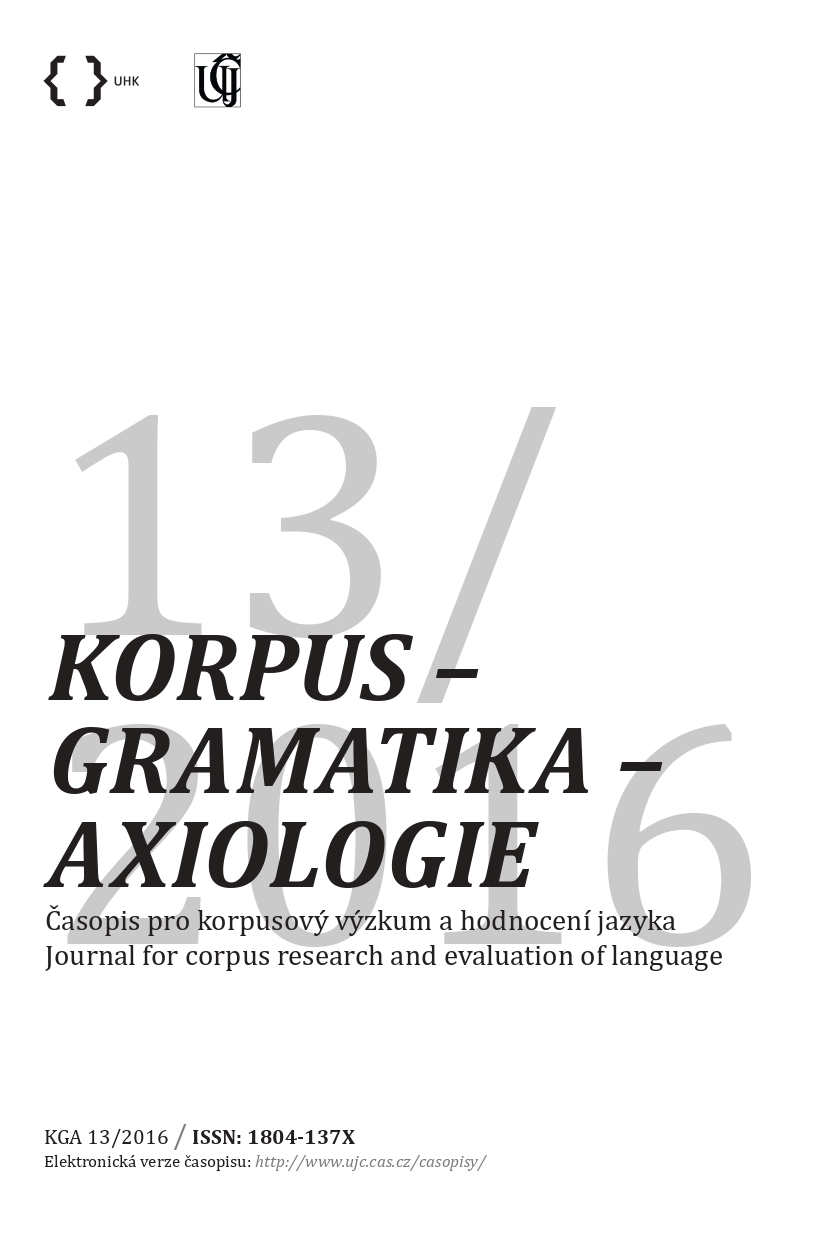Zum adverbialen Argument in den reflexiven Dispositionen des Tschechischen II
The adverbial argument in Czech dispositional reflexives II
Author(s): Aleš PůdaSubject(s): Language and Literature Studies, Theoretical Linguistics
Published by: AV ČR - Akademie věd České republiky - Ústav pro jazyk český
Keywords: adverbial argument; autoagentive; autocausative; dispositional reflexive constructions; disposition; evaluation; evaluative adverb; experiencer; Czech syntactic reflexives; middle construction
Summary/Abstract: The study presents some corpus-based results about dispositional reflexive constructions in Czech. One type of Czech dispositional reflexives expresses the evaluation of a mental state with regard to an event associated with the predicate (Snad se mu žije lehčeji.). The evaluation of experiencing an underlying event in a particular way is usually encoded lexically by an adverbial phrase, the licensing conditions of which have not yet been investigated both within Western formal approaches (“manner adverb”, “some adverbial modification”) and within the Slavic grammatical tradition. Based on the analysis of corpus data, the formal (lexical, syntactic and prosodic) properties of this (explicit or implicit) adverbial argument will be examined. Then the frequency distribution of the adverbial argument (initial, preverbal, postverbal, final) within the clause will be established. Attention will also be given to the frequency of specific adverbs in both affirmative and negative clauses. Furthermore, an explanatory account of the adverbial selection in dispositional reflexives will be developed. When a reflexive verbal form is combined with an adverb (θ-identification), different main types of manner adverbs need to be distinguished, according to the semantic feature of ‘activation’ of the adverb [eval] and the θ-grid (<θ-Exp>, <θ- x>): obligatory evaluative (nerado ‘unwillingly‘), facultative evaluative (výborně ‘excellently‘) pragmatically evaluative (přirozeně ‘naturally‘) and non-evaluative adverbs (rozhořčeně ‘indignantly‘, rychle ‘quickly‘). Within the class of evaluative adverbs, one can further differentiate between primary evaluative adverbs (dobře ‘well‘) and secondary evaluative adverbs (vesele ‘cheerfully‘), according to their semantic structure. The behaviour of adverbs that do not define their pole as either positive or negative (normálně ‘normally‘, nějak ‘somehow‘), or those that can be tied contextually to both poles (zvláštně ‘oddly‘) will be outlined briefly. Finally, the proposed paper will discuss three distinct functions of the modifier sám, -a, -o (‘alone‘) in syntactic reflexives: autocausative, autoagentive and – last but not least – dispositional.
Journal: Korpus - gramatika - axiologie
- Issue Year: 2016
- Issue No: 13
- Page Range: 13-34
- Page Count: 22
- Language: German

